» Autumn arrived today. Around noon. You could feel it in the air. Something shifted. That faint yet unmistakable hint of a chill .. first of the season .. that carries with it the promise of cooler days to come.
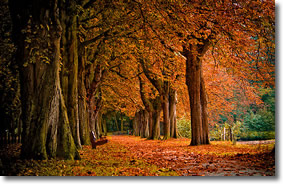 My favorite time of year .. when the mind clarifies .. after the stifling heat of summer.
My favorite time of year .. when the mind clarifies .. after the stifling heat of summer.
The last few nights here have been surprisingly warm. I've taken advantage and gone for walks at sunset. Even in the dark. Gorgeous nights. Stars like a canopy.
No, I'm not gonna say more about JAIL right now .. even tho many have expressed interest. I have however, gone back and added an addendum .. to the original entry.
Also added some graphics .. to break up the text and improve readability. [ Note the Get-out-of-Jail-Free card included at the end. =) ]
Yes, I'm okay. (Thanks for the notes & the calls.) Just tired. Way deep inside. Emotionally. Cant seem to get enough rest. Maybe I'm depressed.
I've taken two big blows. Back-to back. One after the other. So it might take a while to recover. One interesting anomaly » I didnt get sick .. following either event (.. which I normally do). That surprised me.
As part of my therapy, I've been RUNNING the hills here. I walk-down / run-up. Steep grade. Think I heard the neighbor say "9%." About 100 or 120 yards. Five times. Gets the heart-rate going and the sweat flowing. Have done six, but usually regret it (.. next day).
If you wanna run here, gotta run HILLS. Cuz there's nothing else. No flat stretch anywhere. Hills are hard. Kicking my butt. Sucking serious windage. Specially that last 20 yards (.. talk about pain & suffering). Agony. Only just starting to get a handle on the slopes.
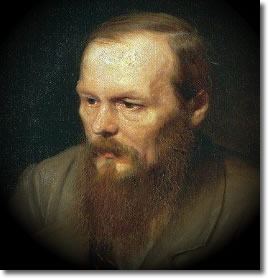 'FEE-uh-dor Dos-toy-'EV-skee
'FEE-uh-dor Dos-toy-'EV-skee
If I had any energy, I might write up a little ditty on Dostoevsky .. like the one I did on Nietzsche or the quickie I did on Ernesto.
I've been trying to figure out Dostoevsky. Holy crap!
He's a trip. My whole center-of-gravity has shifted .. trying to glean some insight into the Russian .. trying to grapple with .. uh, that thing he does.
Dostoyevsky vs 'NEE-chuh
Nietzsche is an insolent schoolboy next to Dostoevsky (.. the headmaster). Then again, Nietzsche never found himself standing in front of a firing squad, either .. an experience that will age you right quick. (Can you imagine? A death sentence?)
Nietzsche BEATS YOU UP (.. which you masochists might enjoy). In other words, he ASSAULTS you .. your beliefs, your values, your ideas .. about things we in the Judeo-Christian world hold most dear.
But Dostoevsky MOVES you .. and I mean that in the most unsettling aspect of the term .. like an earthquake with a kick. Boom! "Holy crap! What was that?"
It is a different kind of force .. than the one Nietzsche wields (.. which is certainly no slouch .. Nietzsche's mojo, I mean). The 'force' that Dostoevsky exercises is more powerful. It's on a whole 'nuther level. Like a glacier. The quotes I've included here should shed light on what I mean.
Hemingway, who won the Nobel Prize for Literature, and who's known for his study of, and sizing up of, other writers and their books, said this:
"In Dostoevsky, there were things believable and unbelievable, but some SO TRUE that THEY CHANGED YOU as you read them; frailty and madness, wickedness and saintliness ..." [ A Moveable Feast ]
••• today's entry continues here below •••
Ernest said Dostoevsky "changes you." I said he "moves you." Same thing. In other words » POWERFUL.
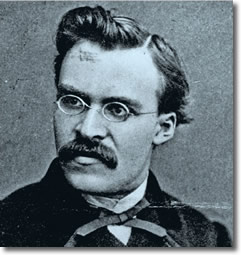 And note the way he says, ".. so true that ..". The truth can sometimes be too hard to handle. (True that.)
And note the way he says, ".. so true that ..". The truth can sometimes be too hard to handle. (True that.)
Nietzsche is energetic, intellectually challenging & uncannily insightful. But you can manage to fend him off (.. no, not by closing the book) .. even tho it seems he tries to be over-powering.
But Dostoevsky (on the other hand) is over-powering .. even tho he doesnt try to be. He just is (.. tho no, he is not understated.) So the two are kind of switched .. in that respect.
Before Nietzsche was Nietzsche, Dostoevsky prophetically said (I'm paraphrasing) » "Dont go there, dude. Dont go down that road. Cuz this is what'll happen if you do."
Nietzsche went insane .. you might recall. And not a little, either. Stark raving mad.
On the other hand, we have Dostoevsky, who was imprisoned in St. Petersburg. Eight months later he was hauled out on a chilly December morning (.. really November) and stood up in front of a firing squad. "Ready!" At the last second (.. Aim!") the Czar sent Fyodor's butt packing to Siberia .. for 4 years of hard labor. "Oh, joy."
[ Mock executions are a form of torture, the effects of which cannot be appreciated by the "uninitiated". ]
After all that he still managed to write some of the finest literature the world has ever seen. You tell me who's the more impressive individual.
[ Tho you must admit that Nietzsche does have the cooler name .. with all those gnarly consonants squished together like that. =) ]
Crime & Punishment has been called a "proto-Nietzschean analysis of the will-to-power" .. later espoused by Nietzsche. So the 'philosophies' (.. bad word) of their swords DO cross.
Coming to Nietzsche's defense, we must acknowledge that he was raised by five women (.. at the same time) .. who all tried to out-do one another .. young Friedrich being the only male in the family, which included his mom, his grandma, two paternal aunts and sister Elizabeth, about whom we know quite bit. Not the nicest person.
Both men seemed to welcome suffering.
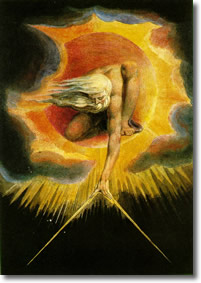 An Escorted Tour of the Lower Levels
An Escorted Tour of the Lower Levels
The FEELING you get reading Dostoevsky .. is that of someone taking you down a long circular STAIRCASE. A concrete circular staircase. Damp, chilly, poorly lit. Beginning at the ground floor.
So it's like you're descending to a dungeon. Slowly but steadily. Interesting but scary.
And after a while you arrive at a LANDING .. where there's a big, heavy, wooden DOOR. (The stairs continue down .. tho who knows how much further they go.)
From his pocket Fyodor pulls a key ring. He uses one of the many KEYS there to unlock the door.
Kla-CHUNK echoes the lock as he smiles at you with a sparkle in his eye. Slowly the door creaks open. "I want to show you something," he says.
And you can tell (very clearly) by WHAT he shows you, and by THE WAY in which he describes these things .. that he has been here before. Many times. Like maybe he LIVES here, or nearby.
And this is very impressive. It definitely gets your attention. Cuz you did not even know such a place existed. And he speaks about such things with authority and a knowing insight .. the kind gained only by much first-hand experience .. of the most intimate kind.
After your tour, he shuts the door and locks it behind you. You think you are done, and that, surely now, you will head back up. But no.
He again takes you DOWN .. to another level. And there you explore even darker things. And you get the feeling that he is taking you down slowly .. so as not to freak you out, which would certainly happen if he went straight to the bottom.
And this descent (.. with its periodic pauses at each level) keeps continuing .. time & again. Whoa!
And so you get this feeling of descending down a bottomless pit. And sometimes, no, you are not ready to go down another level. So you wait. And gather yourself together and consolidate your strength.
And the name of this staircase is » Psychological Penetration.
So when you later read some of the quotes I've included .. it should be clear that .. yes, I understand what they mean by using the term 'distressing' .. to describe the experience of reading Crime & Punishment. (I dont know if ALL of Fyodor's novels are like this, but I'd assumed so.)
 Whoever Ventures Closest is Our Leader
Whoever Ventures Closest is Our Leader
I forget who said it, but there's a quote that goes something like » "Whoever ventures closest to the sun is our leader. And whoever ventures closest to the moon is our other leader."
Here the sun represents man's bright side, his good side, while the moon represents man's dark side.
Now there may be more qualified leaders out there to "take us to the moon" than Dostoevsky, but I dont know any. Do you?
Do you know anyone who has gotten closer to the moon (.. and lived to tell about it)? If you know anything about our universe, you know there's far more "dark-energy" out there than light.
The (20-page) Intro to Crime & Punishment says this (.. quoting a critic of the day):
"In Russia, Crime & Punishment was the literary sensation of the year, the only book the addicts of reading talked about. And when they talked about it, they generally complained of its overmastering power .. and of its having such a distressing effect upon readers that those with strong nerves almost grew ill and those with weak nerves had to put it aside .. " [ critic N.N. Strakhov ].
Can you imagine that? A book so strong that some could not even read it. Too powerful. Too distressing. An anonymous reviewer of the day said this:
"The terrible crime that forms the basis of of this tale is described with such staggering precision, and in such subtle detail, that one finds oneself involuntarily experiencing the peripetias of this drama with all its .."
The translator of my copy (David McDuff, who I like a lot .. even tho I heard the translation by Larissa & Pevear is best) concludes his Introduction (.. which aims to give us insight into Dostoevsky & his book) by citing Nicholas Berdyaev as providing "the most sensitive interpretation" .. when he said he viewed Dostoevsky not as a psychologist, but rather as a "pneumatologist" .. which would be a researcher of souls or of the human spirit.
McDuff says Berdyaev » ".. probably comes closer than any other critic, Russian or non-Russian, to providing a way towards an inner understanding of the novel for Western readers."
Not So Fast There, Bucko
There were some ideas presented by Dostoevsky that I was ready to dismiss. A closer look however .. has revealed that his ideas are not so easily dismissed. That surprised me (.. and definitely gave me more respect for the Russian). We're talking about subtleties.
[ Nietzsche, on the other hand, is not subtle. Nothing very subtle about a grenade. ]
I buy/accept nothing without first sifting it thru my analytical filter. Need to dig a little deeper into Dostoevsky. (I've actually been delving into Javascript lately, booleans.)
So I'm taking a closer look .. and getting my world rocked. But I may have to concede to him a point of contention.
Dostoevsky was obviously intelligent. Even tho math was not his thing, he still scored THIRD on the final exam at the Petersburg School of Engineering.
The fact that he received his formal training in Engineering provides me with a similar point of contact that I'm able to relate to. Engineering trains you to structure your thoughts in a framework that is linear and methodical .. no matter how wildly creative (or unruly) they might originate.
Never heard it mentioned anywhere, but I feel his background in Engineering is one of the key elements that helped contribute to his success as an author.
His novels are not merely 'created' .. rather, they are engineered. Think about it. "They suck you in against your will," is a typical comment. Think about the things in nature that suck you in against your will.
But I have already written more than I'd planned. Maybe I'll add more later.
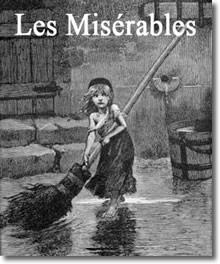 Suffering Suks
Suffering Suks
I tried to read Dostoevsky when I was younger, but never "got" him. Now I get him. Not sure if that's a good thing or not. Cuz it's because of suffering that I get him.
Crime & Punishment is not really about crime & punishment.
I admit it's an over-simplification, but C&P is really about » the SUFFERING (.. something Dostoevsky happens to know a little about) that is caused .. when people lose touch with that inner something .. call it whatever you want » conscience, god, morals, universal good, inner light, etc.
And note that the entire Buddhist religion is founded upon the notion of (alleviating) suffering. So we're not talking about something that billions are not already intimately familiar with.
We Americans are probably less familiar with suffering .. than our neighbors from other nations around the globe. In fact, many would say (.. uh, they do say) that we Americans are actually the CAUSE of much suffering. Well, our government, anyway.
You would have to do your own research there. But you might start with an investigation into who is producing the most WEAPONS in the world. The world's biggest exporter of weapons .. you know, the kind that kill and maim .. including innocent bystanders & children. So maybe, just maybe, there's something to those claims.
If you're floating down the river-of-life on flowery beds-of-ease (.. like I used to), you're not likely gonna 'get' Dostoevsky. [ Good for you. I'm jealous. I remember those days. Almost. Enjoy it while you can. While they last. ] Jail helps .. understanding Dostoevsky, I mean. =)
I get the impression that Dostoevsky views suffering as a form of 'perfecting'. Think of an Olympic athlete .. and how much 'suffering' (aches & pains) they endure in their quest .. to 'perfect' themselves.
This is just my impression .. that suffering (to Dostoevsky) is the method by which the soul is perfected.
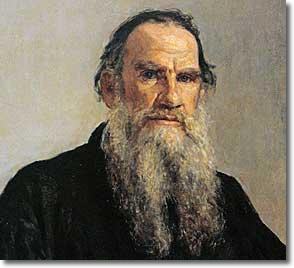 Dostoyevsky & Tolstoy
Dostoyevsky & Tolstoy
Dostoevsky was 6 (.. same age as the Bug) when TOLSTOY was born. So they were contemporaries, tho they never actually met.
Crime & Punishment was published near the same time as War & Peace. You will find both books on just about everybody's list of "World's Best Literature".
« Notice you find none of Nietzsche's books there. Not one. (Tho you will find a Hemingway.) Fyodor was 23 when Nietzsche was born.
Tolstoy lived much longer, tho. Thirty years after Dostoevsky died. I read that Tolstoy wept bitterly upon learning of Dostoevsky's death (in 1881). And that a copy of the Brothers Karamazov was found on the nightstand beside his bed when Tolstoy himself died (.. in 1910). One hundred years ago.
Those nasty Siberian concentration camps take it out of you. And mock executions never help.
One of the men at Dostoevsky's mock execution (named Grigoryev), where the government had laid out coffins directly in front of the platform on which the prisoners were brought that freezing St. Petersburg morning in December (really November), each draped with a black cloth .. WENT MAD from the experience .. INSANE. Wack-o. He snapped. Never did recover. (Understandable, no?)
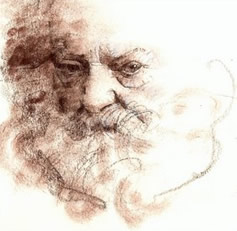 Victor Hugo & Les Miserables
Victor Hugo & Les Miserables
Dostoevsky "showed considerable interest" in the prose of Victor Hugo, from whose recently published Les Miserables (1962) he "drew structural & panoramic inspiration" (.. a curio I find historically interesting, given all the years the French and Russians have spent at war with one another).
Both Tolstoy & Dostoevsky served in their military. Tolstoy saw action as a young man in his late 20's. So when he writes of War .. he knows what he's talking about. For example, Hemingway said:
"Tolstoy made the writing of Stephen Crane on the Civil War seem like the brilliant imagining of a sick boy who had never seen war but had only read of the battles and chronicles .." [ A Moveable Feast ]
'Spring of Nations' Revolutions of 1848
The thing that really got young Fyodor in trouble (at age 28) .. was the » Spring of Nations revolutions .. of 1848 .. the year before Dostoevsky was arrested (.. in April of 1849).
This revolution was the » ".. first (and only) Europe-wide collapse of traditional authority. But within a year reactionary forces had won out and the revolutions collapsed. This revolutionary wave began in France and spread to most of Europe and parts of Latin America."
Over 50 countries were affected, but there was no coordination or cooperation among the revolutionaries in different countries. Factors involved:
- widespread dissatisfaction with political leadership
- demand for more participation & democracy
- demands of the working classes
- upsurge of nationalism
It was during this revolution that leaders & nobles in neighboring countries were getting their heads chopped off by pissed-off peasants.
The Tsar (Nicholas I) didnt want his head to roll, so he cracked down on everybody connected with revolutionaries. One of whom was our Fyodor. One more quote from Hemingway before I close:
"Siberia made Dostoevsky. Writers are forged in injustice." [ Green Hills of Africa ]
Waterboarding, Russian Serf Style
Speaking of popular uprisings. Apparently Fyodor's dad was not very nice to the serfs (.. that he literally OWNed. 100 of them.) .. to the point of beating them and debauching their fairest maidens. (In our modern Western vernacular, we might call him .. "an asshole".)
One of the stories .. was that the serfs waylaid his ass one afternoon (.. in 1839).
Basically they waterboarded him .. only they didnt use a board. And used vodka instead of water (Stoli, maybe?) .. but only after first crushing his nuts .. with their bare hands.
Have mercy. Talk about the agony of defeat. (Memo to self: Be nice to serfs.)
This happened when Fyodor was 17, while he was away at school. He supposedly freaked out upon hearing the news. Ended up writhing on the floor in an epileptic fit. That's reportedly when the fits began. Something he would have the rest of his life (.. 3 or 4 times a year, and more frequently during periods of great strain).
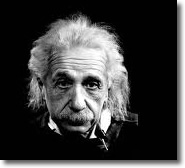 Influence
Influence
James Joyce said Dostoyevsky is THE MAN ..
".. who, more than any other, created modern prose, and intensified it to its present-day pitch. It was his explosive power which shattered the Victorian novel with its simpering maidens and ordered commonplaces; books which were without imagination or violence."
Virginia Woolf said Dostoevsky's novels are ..
".. seething whirlpools, gyrating sandstorms, waterspouts which hiss and boil and suck us in. They are composed purely and wholly of the stuff of the soul. Against our wills we are drawn in, whirled round, blinded, suffocated, and at the same time filled with a giddy rapture. Out of Shakespeare there is no more exciting reading."
The best paragraph in the entire Wikipedia article is:
Dostoyevsky's post-prison fiction abandoned the Western European-style domestic melodramas and quaint character studies of his youthful work in favor of dark, more complex storylines and situations, played-out by brooding, tortured characters--often styled partly on Dostoyevsky himself--who agonized over existential themes of spiritual torment, religious awakening, and the psychological confusion caused by the conflict between traditional Russian culture and the influx of modern, Western philosophy.
Dostoevsky is, by the way, the only author to place four (4) titles on the list of » the 100 Best Books of All Time .. in any language. Ever. (Shakespeare, Tolstoy & Kafka each place three.)
Note that the title of that web page is "Best Books" .. tho not necessarily the best Writers. Few would dispute that Shakespeare is a better writer than Dostoevsky. So why does Fyodor place more titles on the list? (.. than anyone else?)
James Joyce and Virginia Woolf, whom I quoted earlier, both place titles on the "100 Best Ever" list. (Actually, Virginia places two.) So it seems they know a little about literature and the craft of Writing.
Recall, too, what Einstein said (.. you know, the guy who said » E=mc2 ) about Dostoevsky.
But the BEST quote I've ever heard .. came from Henry Miller:
"Dostoevsky rose from the depths and, reaching the summit, retained something of the depths still about him."
Tho this one by Edwin Muir is also insightful:
"Dostoyevsky wrote of the unconscious as if it were conscious; that is in reality the reason why his characters seem 'pathological', while they are only visualized more clearly than any other figures in imaginative literature... He was in the rank in which we set Dante, Shakespeare and Goethe."
Let's get current. The man rated/ranked #1 of FP's list of Top 100 Global Thinkers has The Brothers Karamazov on his reading list. See the bottom of this page.
His later years were softened by the tenderness and devotion of his second wife. In June, 1880, he made his famous speech at the unveiling of the monument to Pushkin in Moscow, where he was received with extraordinary demonstrations of love and honour.
A few months later Dostoyevsky was dead. A vast multitude of mourners "gave the hapless man the funeral of a king." [ source ]
I got the impression while reading Dostoevsky .. that he a "nobler soul". Not sure if anyone else feels that way. Have not heard anyone mention this. A noble soul. Perhaps I should capitalize the word » Noble.
Licking my wounds. Dont miss the Ken Burns special on » Prohibition (.. which turned millions of ordinary law-abiding citizens into criminals). Sure to make you thirsty. ■
For more along these lines, here's a Google search preconfigured for the query » fyodor dostoevky crime punishment suffering
